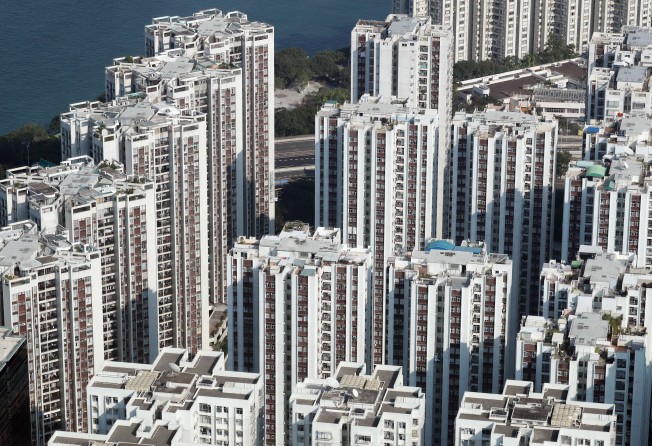Hong Kong’s biggest landowners usurped by mainland developers
In the latest sign, Ping An Real Estate Capital’s venture with Road King Infrastructure outbid 13 developers to secure the right to develop a residential plot at Wong Chuk Hang.

Hong Kong’s largest private landowners and apartment builders have been usurped by capital from north of the border, as mainland Chinese developers snapped up choice land plots to become the new landlords in the city, according to data by a property consultant.
Seven developers -- controlled by Hong Kong’s richest men -- used to win 45 per cent of all residential land sites sold in the city as recently as in 2012. That ratio halved to 22 per cent by last year, according to data by Jones Lang LaSalle, a property consultant.
For the latest proof, look no further than Tuesday’s sale by MTR Corp., the city’s subway operator, of a residential plot next to the Wong Chuk Hang station.
Ping An Real Estate Capital, a unit of China’s second largest insurer Ping An Insurance, teamed up with a small Hong Kong firm called Road King Infrastructure, and outbid 13 developers including the city’s largest builders Cheung Kong, Sino Land, Sun Hung Kai Properties and Henderson Land.
While the MTR hasn’t disclosed how much the winning bid was, analysts value the site at between HK$8 billion to HK$9.8 billion (US$1.26 billion), or HK$14,000 per square foot to HK$17,000 per sq ft based on a total floor area of 576,950 square feet.
Triggered by the depreciation of the yuan against the US dollar and market-cooling measures on the mainland, Chinese developers are pouring their funds into Hong Kong to seek refuge and aim for better returns.
Mainland Chinese developers won about one plot out of every three on sale through government tender in 2016, and the trend will continue rising this year, said S&P’s analyst Esther Liu.
“Unless the Hong Kong players pay aggressive prices, they are going to lose to Chinese developers,” Liu said. “Hong Kong developers will increasingly find themselves having to choose between riskier land bank policies and eroding market shares.”
Nan Fung Group, New World Development and Wheelock Properties are the remaining developers that round out the top seven of Hong Kong’s private landowners.
Their supply of housing completions will drop to 53 per cent between 2017 and 2019, from as high as 84 per cent in 2014, and 77 per cent last year, JLL said.
At least one developer said he has no plans to blindly chase after mainland bids.
“Hong Kong is a free market, so you can’t forbid others from bidding for our land,” said K Wah International Holdings’ chairman Lui Che-woo, Hong Kong’s second-richest man of 2014, valued at US$21 billion. Developers who pay high land prices may lose money in future, said the casino and property magnate.
Sun Hung Kai, Hong Kong’s largest developer by value, will ensure there’s a reasonable profit margin before they submit a bid for land, said its deputy managing director Mike Wong Chik-wing. Its second-half earnings jumped 57 per cent to HK$14.6 billion, SHKi said on Tuesday.
Apart from purchasing sites from the government’s sales, the company will look for other land replenishment opportunities such as converting farm land into residential use.
“The seven heavyweight developers won only five residential sites in the government public land sales market last year, compared with 10 sites in 2012,” said Henry Mok, JLL’s regional director of capital markets.
The rush of mainland Chinese capital has also boosted home prices in Hong Kong, already the world’s least affordable city.
January’s home price index rose 0.62 per cent to 309 from 307.1 in December, extending a 10 month-increase, according to data from the Ratings & Valuation Department. The prices rose 10.8 per cent on a year-on-year basis.
Additional reporting by Jennifer Li and Summer Zhen